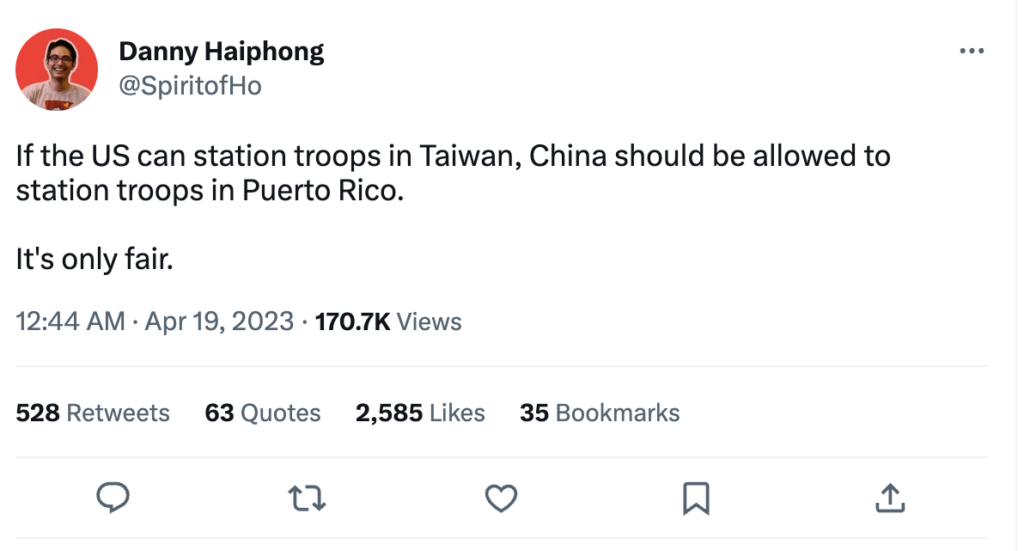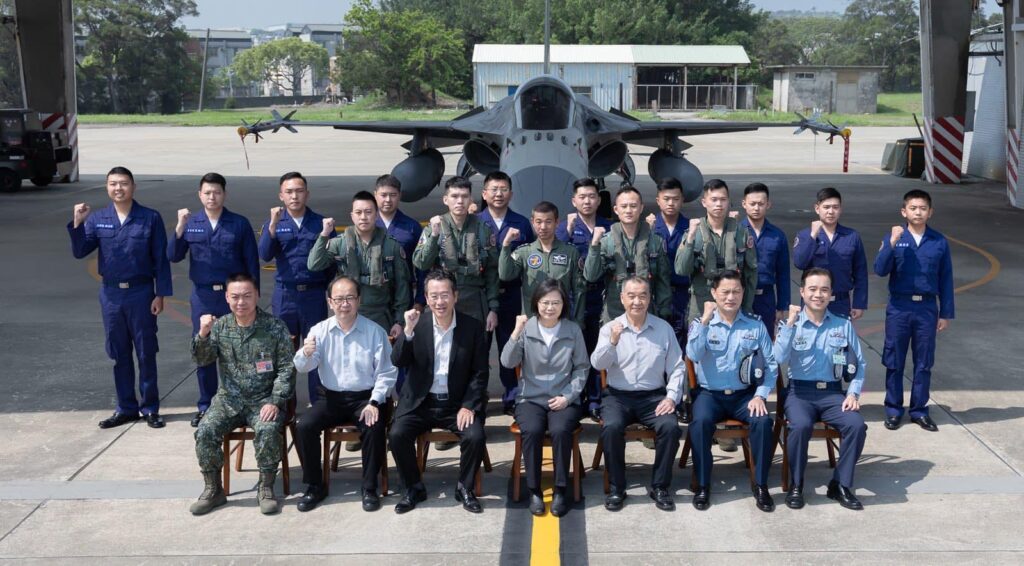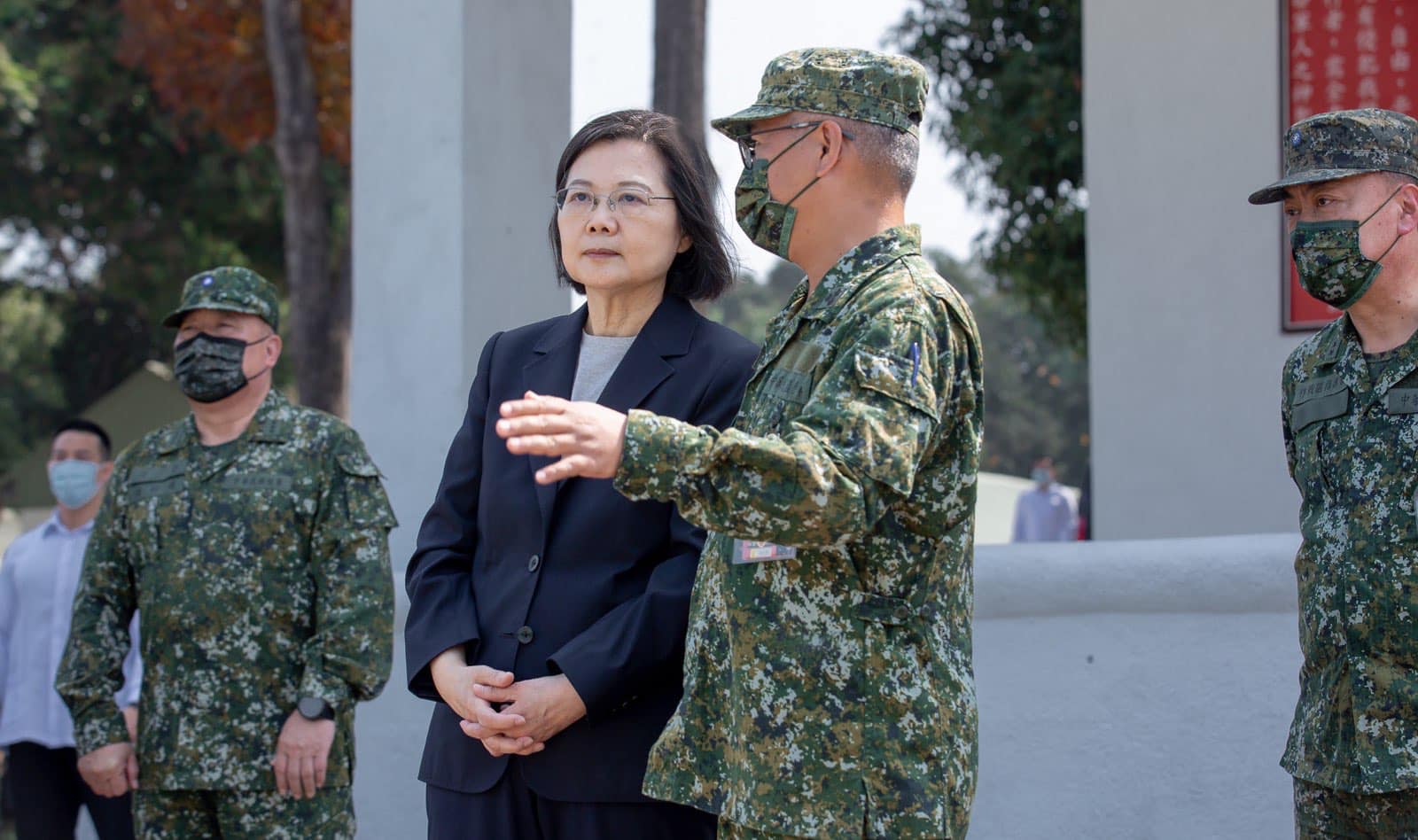by Brian Hioe
語言:
English
Photo Credit: Tsai Ing-wen/Facebook
New Bloom/No Man is an Island presents “Bad Taiwan Takes,” a new column collecting and responding to bad takes on Taiwan.
A RECENT TWEET by tankie influencer Danny Haiphong reacted against news that the US currently has 200 military advisors in Taiwan. Haiphong suggested that China was justified in its outrage, while advocating that if the US is allowed to station troops in Taiwan, China should be allowed to station troops in Puerto Rico.
Haiphong’s comments prove doubly ironic. Puerto Rico itself has long faced colonialism from the US, in spite of its residents’ calls for the right to self-determination. This finds a parallel in contemporary Taiwan’s struggle for self-determination.
Taiwan is, of course, de facto independent of China as a fully-functioning democracy, but it lacks de jure international recognition. China views Taiwan as part of its territory and, given its existing independence, China regularly threatens Taiwan militarily.

In an ideal world, we would see both Taiwan and Puerto Rico as having the right to self-determination. But in all probability, Haiphong would only support self-determination for the latter and not the former. Why? Because of murky views about the rest of the world outside of the US, in which any force opposed to the US is idealized and romanticized, rather than seen as engaging in the same or similar behavior.
If the US, in fact, had full-fledged bases in Taiwan, one would generally expect to see broader pushback against US military presence in Taiwan along the lines of Japan, South Korea, or the Philippines. This would occur due to anger over the actions of members of the military, accidents that occur due to military training, and the ecological impact of such bases.
The issue would likely be contentious in light of the threats that Taiwan faces from China. At present, in the absence of US military bases, many in Taiwan would welcome a US military presence as a deterrent from China. This would be less likely to be the case if there actually were a US military base in Taiwan and Taiwanese could observe the direct impact for themselves.
But, either way, 200 military advisors are not anywhere on the scale of a military base, nor is it as though the US would fight off the entire Chinese military with a mere 200 people.
What, then, of the right to self-determination? If a Puerto Rico that had the right to self-determination was able to decide if it wanted Chinese troops in Puerto Rico, that would be their choice–and not the US’s. It proves strange for Haiphong to speak of China stationing troops in Puerto Rico as a justified response to the US, without any consideration of what Puerto Ricans would themselves want.

Photo credit: Tsai Ing-wen/Facebook
Consequently, at present, the Taiwanese electorate does not react against the US presence in Taiwan. As the opposition KMT has increasingly alleged that closer ties with the US could be dangerous to Taiwan, in provoking China, if the Taiwanese agree with that view, they can vote the currently ruling DPP out of power in elections next year. This is the right of self-determination of Taiwanese, in that they can decide who they want to align with in international geopolitics, if this is sufficient to maintain Taiwan’s de facto independence and the democratic freedoms that stem from that.
Yet in scarcely considering the viewpoint and aspirations of Taiwanese or even the Puerto Ricans he might otherwise claim to stand in support of, Haiphong evidences a worldview that only considers the geopolitical perspectives of world superpowers. And if Haiphong believes that the viewpoints of 1.4 billion Chinese outweigh the viewpoints of 23 million Taiwanese, would he argue that the viewpoints of 3.26 Puerto Ricans do not matter in the face of that 332 million Americans?



